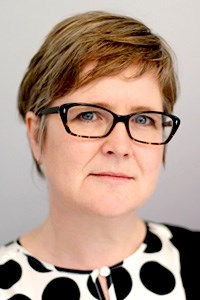My one message for the Nursing and Midwifery Council (NMC) as it develops its new five year vision is this – if nothing else stick to the knitting.
The vision comes at a critical moment for NHS staff. As the representative body for all 226 NHS trusts and foundation trusts, we’re told every day by our members that workforce issues are their number one concern and, following the very recent publication of the interim NHS people plan, there’s a feeling that things are now pointing in the right direction.
We’re told every day by our members that workforce issues are their number one concern and, following the very recent publication of the interim NHS people plan, there’s a feeling that things are now pointing in the right direction.
Deputy Chief Executive
Maintaining momentum
With key stakeholders and national leaders on the same page, there’s a new – albeit cautious – optimism around the prospects for a nursing workforce beset by shortages, which the plan admits is “the single biggest and most urgent we need to address”.
While the focus on nurses is a no-brainer, we can’t afford to lose the momentum created by the process of inclusive engagement led by the NHS arms-length bodies, in developing a series of initiatives for the profession in recent months.
But, some questions remain unanswered, particularly around the ability of trusts to recruit from abroad.
Increased international recruitment is not a long-term solution for the NHS. At the same time it must also improve the conditions to grow interest in healthcare careers from within the UK.
Deputy Chief Executive
Increased international recruitment is not a long-term solution for the NHS. At the same time it must also improve the conditions to grow interest in healthcare careers from within the UK. We recognise that migrant staff make a huge contribution to the NHS, and it’s clear that we need more internationally trained nurses right now to ensure providers can deliver the type of services expected by the public.
The NMC has a role to play here
We were pleased by the council’s decision to adjust the English language testing requirements for overseas nurses late last year. Ongoing consultation in this area should help to move towards evaluations which more accurately capture the skills, experience and approach we demand from nurses in today’s NHS.
We need to reduce the burden of immigration rules and costs on applicants and organisations, and the regulator may also have a role to play in debates over ethical recruitment, which can sometimes take place via an overly-simplistic analysis of which countries are on or off the ‘no go zones’ for recruitment.
A culture of recognition and development
The shape of the NHS workforce will continue to evolve over the next five years, particularly as the contribution of staff working in “new roles” grows.
The shape of the NHS workforce will continue to evolve over the next five years, particularly as the contribution of staff working in “new roles” grows.
Deputy Chief Executive
Nursing associates already play a key role within multi-disciplinary teams, but more work is needed to support these professionals and better define their work. While trusts are eager to employ clinical support staff, including nursing associates and physician associates, it is not always clear what regulators expect from them and the senior staff supervising their work.
More clarity on the roles and responsibilities of these professionals will help set the framework for flexibility in local staffing models, allowing boards to determine the skills mix that can best cater for the specific needs of their patients.
Workforce strategies at local, system, regional and national levels will also be improved significantly by a greater focus on the development of staff in lower bands, including apprentices.
Deputy Chief Executive
Workforce strategies at local, system, regional and national levels will also be improved significantly by a greater focus on the development of staff in lower bands, including apprentices.
When canvassing for views from providers to feed into the interim people plan, one particular message came through loud and clear: trusts are not able to properly train their staff and encourage advancement within the current funding framework for continuing professional development (CPD).
A role in promoting population health
Finally, the NMC has an important role in the advancement of prevention and population health, highlighted by the focus on ‘promoting health and preventing ill health’ within its latest future nurse standards.
As healthcare organisations come together in 2019, to produce system-wide plans to reduce health inequalities, trusts can also contribute as ‘anchor organisations’ within communities to help facilitate consensus.
While our priorities for the NHS workforce will inevitably be based on the pressing need to fill rota gaps, we must not lose track of the need to consider future care needs across the country as we look to make good on the promises of the long term plan.
Deputy Chief Executive
Healthcare professionals – including nurses, midwives and nursing associates – need to be supported to assess needs for prevention and health improvement, and to truly ‘make every contact count’. While our priorities for the NHS workforce will inevitably be based on the pressing need to fill rota gaps, we must not lose track of the need to consider future care needs across the country as we look to make good on the promises of the long term plan.
So, I started by saying that the NMC should stick to the knitting. That might sound like a basic exhortation. It isn’t. Anyone who has worn a hand knitted Fair Isle jumper or read the history of a Guernsey sweater, knows that the skill going in to those endeavours, and the versatility, resilience and endurance of the finished articles, are far from basic.
This blog was first published on the NMC website.
About the author

